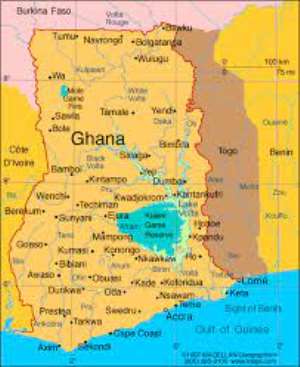
Ghana, a West African country known for its rich natural resources, has in recent years become a focal point in the global conversation surrounding the supply of critical minerals. These minerals, which are essential for a variety of industries such as technology, healthcare, and infrastructure, play a crucial role in the development of modern society. However, the mining of these minerals can often come at a significant cost to both the environment and local communities.
In order to ensure a stable supply of critical minerals in Ghana, various strategies have been implemented by the government and industry stakeholders. These strategies aim to balance the economic benefits of mining with the need to protect the environment and promote sustainable development. In this article, we will examine some of the key strategies being implemented in Ghana to secure a stable supply of critical minerals and address the critical concerns surrounding mining in the Ghanaian mining industry.
One of the main strategies being implemented in Ghana to ensure a stable supply of critical minerals is the promotion of responsible mining practices. This involves the enforcement of strict environmental regulations and guidelines to minimize the impact of mining activities on the environment. The government has also introduced policies aimed at promoting sustainable mining practices, such as the adoption of green technology and the use of renewable energy sources to power mining operations.
Another strategy being implemented in Ghana is the promotion of local content in the mining industry. This involves the prioritization of local companies and workers in the procurement of goods and services, as well as the promotion of local employment and skills development. By supporting local businesses and communities, Ghana aims to ensure that the benefits of mining are shared more equitably among its population.
Furthermore, Ghana has also been working to attract foreign investment in its mining sector through the introduction of investor-friendly policies and incentives. This includes the streamlining of the mining approval process, the reduction of taxes and royalties for mining companies, and the provision of infrastructure support to facilitate mining operations. By attracting foreign investment, Ghana aims to increase its capacity to extract and process critical minerals, thereby enhancing its position as a key player in the global mining industry.
Despite these efforts, there are a number of critical concerns surrounding mining for materials in the Ghanaian mining industry. One of the main concerns is the environmental impact of mining activities, which can result in deforestation, soil erosion, water pollution, and loss of biodiversity. These environmental impacts can have far-reaching consequences for local communities and ecosystems, and can lead to conflicts between mining companies and affected communities.
Another critical concern is the social impact of mining on local communities, including issues such as land displacement, forced relocation, and loss of livelihoods. Mining activities can disrupt traditional land use practices and access to natural resources, leading to social tensions and conflicts within affected communities.
Furthermore, there are concerns surrounding the governance of the mining sector in Ghana, including issues such as corruption, lack of transparency, and inadequate regulation and enforcement. These governance challenges can undermine the effectiveness of policies and regulations aimed at promoting responsible mining practices, and can lead to negative social, economic, and environmental impacts.
In conclusion, while Ghana has made significant strides in implementing strategies to ensure a stable supply of critical minerals, there are still critical concerns surrounding mining for materials in the Ghanaian mining industry. By addressing these concerns and promoting responsible mining practices, Ghana can maximize the benefits of its mineral resources while minimizing the negative impacts on the environment and local communities. Only through a concerted effort by the government, industry stakeholders, and civil society can Ghana achieve a sustainable and inclusive mining sector that benefits all of its citizens.




 'Let's work for peaceful election without violence, disturbances' — Mahama to Gh...
'Let's work for peaceful election without violence, disturbances' — Mahama to Gh...
 Bad cocoa harvests and high cost of living making farmers vulnerable in child la...
Bad cocoa harvests and high cost of living making farmers vulnerable in child la...
 Court sentences welder to 25 years imprisonment for robbing motorbike
Court sentences welder to 25 years imprisonment for robbing motorbike
 Majority caucus fully supports NAPO as Bawumia’s running mate — Afenyo-Markin
Majority caucus fully supports NAPO as Bawumia’s running mate — Afenyo-Markin
 Parliament must reject LI seeking to regulate cement prices – CUTS International
Parliament must reject LI seeking to regulate cement prices – CUTS International
 LI seeking to regulate cement prices wickedness – Baba Jamal
LI seeking to regulate cement prices wickedness – Baba Jamal
 Parliament forms Ad Hoc Committee to explore pension scheme for former MPs
Parliament forms Ad Hoc Committee to explore pension scheme for former MPs
 Afenyo-Markin urges NPP MPs to support anyone selected as Party's Running Mate
Afenyo-Markin urges NPP MPs to support anyone selected as Party's Running Mate
 Akufo-Addo appoints Prof Yayra Dzakadzie as NaCCA boss
Akufo-Addo appoints Prof Yayra Dzakadzie as NaCCA boss
 NDC dismisses Northern Regional director of elections
NDC dismisses Northern Regional director of elections
